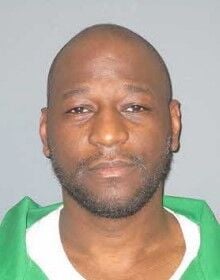Freddie Owens Execution: A Controversial Case in South Carolina
Freddie Owens, a 46-year-old inmate, is set to be executed by lethal injection on September 20, 2024, marking South Carolina's first execution in 13 years. This case has garnered significant media attention due to the controversial circumstances surrounding his conviction and the recent claims of innocence from a key witness.
Background of the Case
Freddie Owens was convicted for the 1997 murder of Irene Graves, who was shot during a robbery at a convenience store in Greenville, South Carolina. The prosecution's case heavily relied on the testimony of Stephen Golden, Owens' co-defendant, who claimed that Owens was involved in the crime. However, in a dramatic turn of events, Golden has recently stated that he lied during the trial to save himself from facing the death penalty.
Key Developments Leading to the Execution
Witness Recantation: Golden's recent affidavit claims that Owens was not present during the robbery and did not shoot Graves. This statement has raised questions about the integrity of the original trial and the evidence presented against Owens.
Legal Appeals: Owens' legal team has filed multiple appeals, including an emergency motion citing new evidence that challenges his conviction. However, the South Carolina Supreme Court has repeatedly denied requests to halt the execution, stating that the new claims were insufficient to warrant a stay.
Public Outcry: As the execution date approaches, there has been a surge of public protests advocating for clemency for Owens. Activists argue that executing someone with such serious doubts about their guilt is a miscarriage of justice.
Media Coverage: Various news outlets, including USA Today, CBS News, and AP News, have provided extensive coverage of the case, highlighting the conflicting narratives and the emotional turmoil surrounding the impending execution.
The Execution Process
Owens' execution is set to take place at the Broad River Correctional Institution in Columbia, South Carolina. The state has prepared for this execution by ensuring that the lethal injection protocol is in place, as well as having alternative methods, such as the electric chair and firing squad, ready if needed. This execution will be a significant moment in South Carolina's history, as it will be the first since 2011.

Public and Legal Reactions
Protests: Activists have organized protests outside the prison, urging Governor Henry McMaster to grant clemency. They argue that the state should not proceed with an execution when there are substantial doubts about the inmate's guilt.
Legal Experts: Many legal experts have weighed in on the case, emphasizing the importance of due process and the potential consequences of executing an innocent person. They argue that the justice system must be held to a higher standard, especially in capital cases.
Freddie Owens' Letters
In the days leading up to his execution, Owens has shared letters that reveal his emotional state. Some letters express feelings of vulnerability and humanity, while others contain threats against those he perceives as betrayers. These letters have been published by various media outlets, providing a glimpse into the mind of a man facing death.
The case of Freddie Owens is a poignant reminder of the complexities and moral dilemmas surrounding the death penalty. As the execution date approaches, the questions of guilt, justice, and human rights remain at the forefront of public discourse. The outcome of this case could have lasting implications for the future of capital punishment in South Carolina and beyond.
For those interested in following the developments, live coverage will be provided by local news outlets, including The Greenville News, as the situation unfolds. The case continues to evoke strong emotions and debates about the efficacy and morality of the death penalty in the United States.






